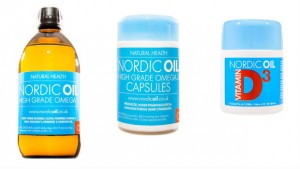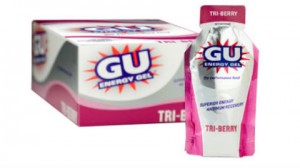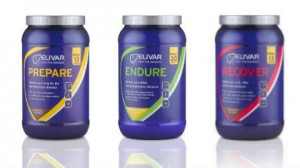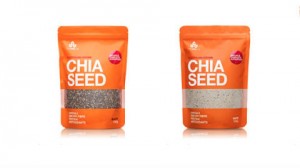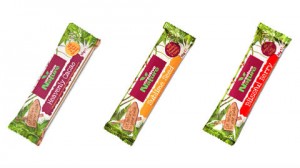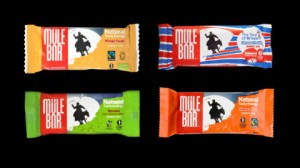 Nigel Mitchell, Head of Nutrition at Team Sky (and GB Cycling Team Nutritionist to boot), knows a thing or two about what it takes to provide power to the pedals. Last year he was part of the team that helped power Sky to a Tour de France one-two podium finish and go on to help Wiggins and co tear up both track and road at the London Olympics – this year, of course, it was Froome’s turn for a TdF win. Taking time out of his busy Schedule, he talked to Cyclo to discuss diet and help answer the question: How can your average rider come close to the nutrition perfection practiced at Team Sky?
Nigel Mitchell, Head of Nutrition at Team Sky (and GB Cycling Team Nutritionist to boot), knows a thing or two about what it takes to provide power to the pedals. Last year he was part of the team that helped power Sky to a Tour de France one-two podium finish and go on to help Wiggins and co tear up both track and road at the London Olympics – this year, of course, it was Froome’s turn for a TdF win. Taking time out of his busy Schedule, he talked to Cyclo to discuss diet and help answer the question: How can your average rider come close to the nutrition perfection practiced at Team Sky?
Calories – It’s a very individual thing obviously, but a Team Sky rider is probably using about 6000kcal on a long leg of the Tour de France for example. But then if you’ve someone doing a six or seven hour sportive you’re not going to be a million miles away from that. The foods are going to be similar, just that the amount is going to be scaled up or down. You have to remember that if you eat on the bike you can easily be taking on 80g of carbs (360kcal) per hour whilst riding. It’s not as big as you might think….
Getting the mix right – At Team Sky we work on about 60-90g of carbs per hour and that can be done with a mixture of race drinks, a nutrition bar, maybe a gel and rice cakes, paninis are good. Just simple ever-day foods. This will depend on the intensity of the racing, but dead Easy.
Fast and slow release carbs – You have to think about delivery systems – it’s a little bit like transport networks; if you’re running barges that travel at 5miles an hour but they are delivering every five minutes, then you have an effective delivery system. If you have a Ferrari but it only runs once a week then it’s not as effective as using the much slower barges.
Having some designated fast carbs, like gels, is particularly useful if you are going into something that’s going to be a big effort: bottom of a climb, something like that. A lot of the foods that we tend to give our riders is more of the medium glycaemic, but they are eating on a very regularly basis so they are meeting that delivery system. If they need, let’s call it ‘quick energy’, then a gel makes sense. Gels for your sportive rider are ideal if they are starting to flag or are getting fatigued, it’s a good fuelling system and they can get most of what they need there. Having a caffeinated gel in reserve can be really useful too.
Fluids – Taking on adequate fluid on the bike and off of the bike is important to manage your hydration. In Team Sky our energy/hydration drinks are provided by Gatroade. We recommend one bidon of the race drink per hour, as it gets hotter we just get more fluid from water. Everyone has different sweat rates you can check your weight before and after training, take into account any fluid drunk and work out the weight difference and therefore your approximate sweat rate. This is easily done during a 60-minute turbo session.
Pre- and post-ride foods – Breakfast might be omelette and rice or porridge – that’s popular with our guys. Some fruit juice is great. After the bike for your sportive riders – chicken, fish, meat, rice, potatoes, vegetables – exactly the same as our guys are eating. It’s all very simple, straightforward stuff…
Protein – The foods that I’ve mentioned already have a lot of protein in too. The rice cakes that we make have cream cheese in, the bars are a flapjack-type made by CNP, which have protein in, paninis tend to be ham and cheese. So our riders are eating protein on the bike.
You have different metabolic pathways and protein isn’t directly involved in carb metabolism but some of the amino acids and nitrogenous compounds that you get from protein are involved. It’s not a direct effect – the role of protein on he bike isn’t about performance, it’s a recovery thing. It helps them or you ride again the next day. To put it very simply the carbs are for fuelling you and the proteins aid recovery…
The simplicity of milk – I’m a big believer in dairy products in general and in milk particularly – I think it’s fantastic. What you can do very easily with milk is add a couple of bananas which will boost the carb content if you need that, but a pint of milk alone will deliver about 20g of carbs just by itself. It’s a great recovery product, just not always that convenient post-ride…
Vegetable juices – We use a lot of vegetable juices at Team Sky and, again, your sportive riders can do this just as easily. The reason we use fresh vegetable juice is that it’s an easy way to consume the goodness of the vegetable without the bulk. If you’re scaling up your diet and you have to get through loads of pasta or whatever then if you can reduce the bulk that’s needed to be eaten as far as the vegetables are concerned, by getting it in the form of a juice, then you can clearly see the benefits of that.
Additional supplements – Generally I don’t think they’re necessary – perhaps the only one where there might be a real benefit is the Omega-3s, the fish oils, because it’s difficult with a modern diet to get all of the Omega-3 fats from food alone. The quality of the supplement product is vital though – the one we use in the team is very high quality, it’s the CNP Pro-Omega.
Beetroot supplements – There’s probably not a huge benefit, but then again they probably won’t hurt anyone. The worst it will do is turn your pee pink. Under a controlled trial you can show some benefits, but for your sportive rider I’d say save you money and spend it on a set of lighter wheels and do a bit more training. Most benefit comes from training. Basically there are other things you can focus on to improve your performance. Get out on the bike a bit more is key….
Weight-loss for cycling – What you want to be doing is protecting lean tissue and dropping fat, the best way of doing that is making sure you are getting good quality, regular protein intake and bringing down the calories just a bit. If you don’t get the balance right you end up losing a lot of functional tissue and muscle mass and that, of course, will affect your performance adversely. Some people get it completely wrong and end up looking fatter than before because they have lost proportionally more muscle than fat – they develop what I call the ‘skinny-fat look’, which isn’t at all good.
Personal favourite bike food – It’s bananas for me. If you do a four-hour ride it’s difficult to carry enough for the full four hours, but I love them…
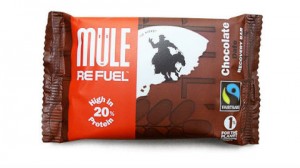 Cyclo has long admired the products from MuleBar and used both their Kick Gels and Energy Bars across numerous long rides, what we haven’t done – until now – is use and review their equally delicious MuleBar ReFuel Bars…
Cyclo has long admired the products from MuleBar and used both their Kick Gels and Energy Bars across numerous long rides, what we haven’t done – until now – is use and review their equally delicious MuleBar ReFuel Bars…

